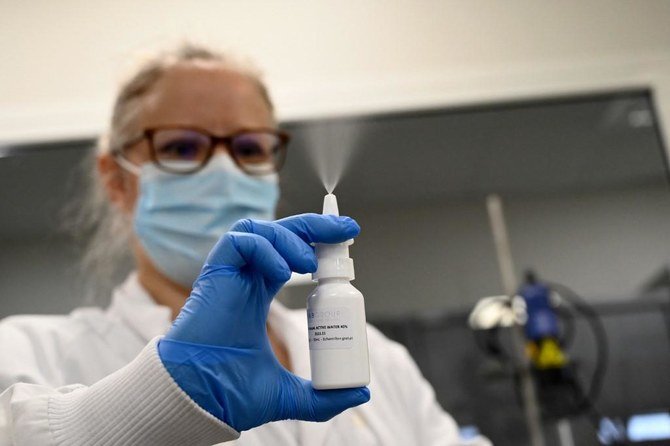Scientists at Oxford University in the UK plans to start testing whether the AstraZeneca coronavirus vaccine can be administered through a nasal spray after a US company launched a trial of its own spray in the UK.
It is hoped that sprays, which are already used to give children flu vaccines, may prove superior to injections in targeting immune cells more susceptible to respiratory viruses in the future, concentrating on the lungs, throat, and nose.
The Oxford team is planning for 30 volunteers to receive the spray and then be tracked for four months in the initial stage of the trial, before expanding the scale is found to be safe.
In addition, a New York-based company, Codagenix, has already launched a trial of another nasal spray vaccine, COVI-VAC, on 48 volunteers in London, following successful animal tests.
COVI-VAC, a live attenuated vaccine, uses a genetically modified version of the coronavirus to stimulate the body’s immune system response. The Oxford vaccine, meanwhile, is an adenovirus vaccine, which uses a weakened, genetically-modified cold virus to stimulate an immune response.
If successful, this may alleviate issues for people with a fear of needles, and ease supply problems owing to the complexity of manufacturing, transporting, and storing jabs.
It is hoped that sprays, which are already used to give children flu vaccines, may prove superior to injections in targeting immune cells more susceptible to respiratory viruses in the future, concentrating on the lungs, throat, and nose.
The Oxford team is planning for 30 volunteers to receive the spray and then be tracked for four months in the initial stage of the trial, before expanding the scale is found to be safe.
In addition, a New York-based company, Codagenix, has already launched a trial of another nasal spray vaccine, COVI-VAC, on 48 volunteers in London, following successful animal tests.
COVI-VAC, a live attenuated vaccine, uses a genetically modified version of the coronavirus to stimulate the body’s immune system response. The Oxford vaccine, meanwhile, is an adenovirus vaccine, which uses a weakened, genetically-modified cold virus to stimulate an immune response.
If successful, this may alleviate issues for people with a fear of needles, and ease supply problems owing to the complexity of manufacturing, transporting, and storing jabs.


















